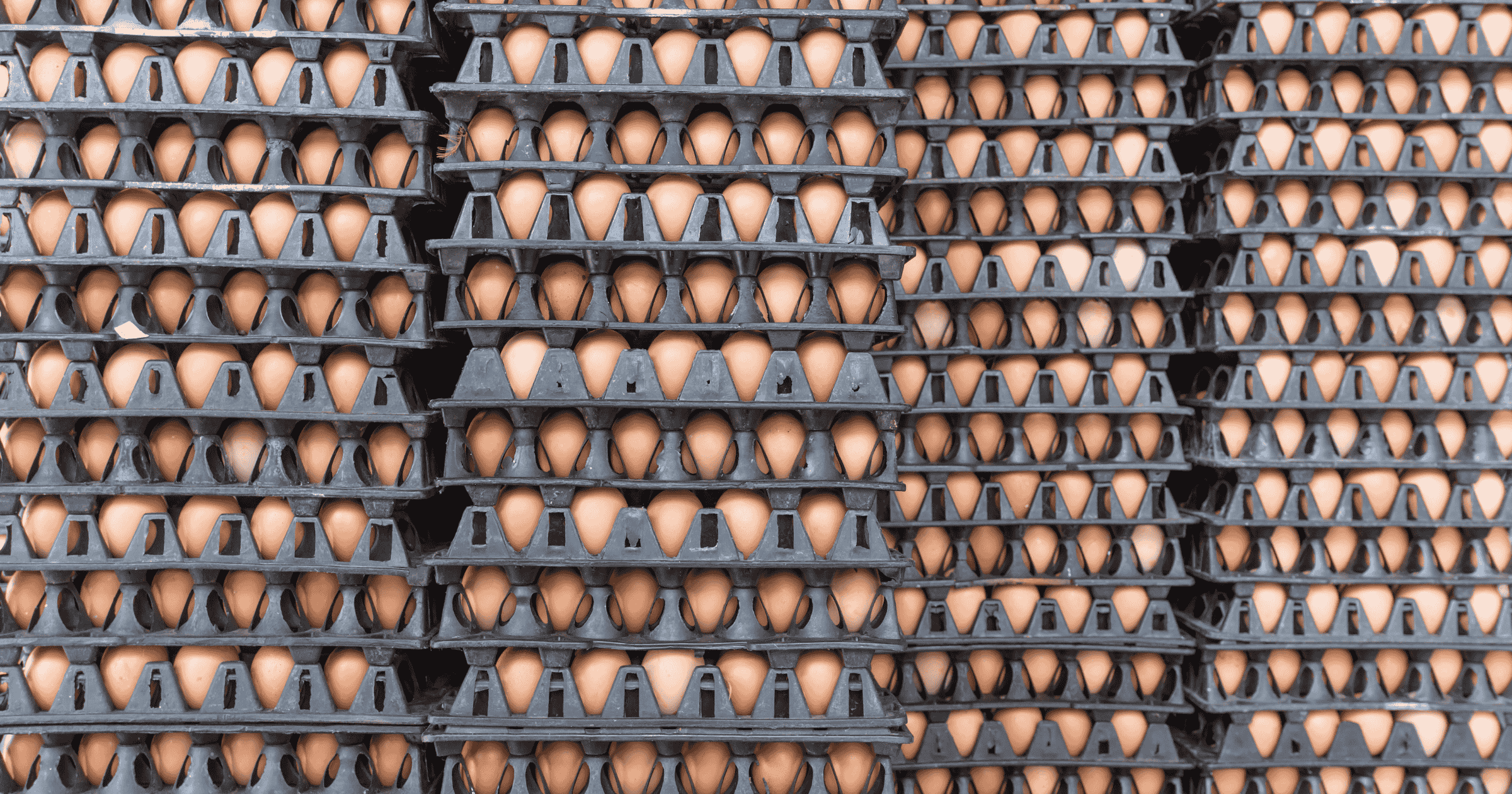
07 Apr How to Increase Egg Production in Nigeria – Top Strategies for Poultry Farmers
Introduction: Why Egg Production Matters
Eggs are one of the most consumed and affordable protein sources in Nigeria. As demand continues to rise, poultry farmers face one major challenge: how to consistently increase egg production while maintaining quality.
Whether you run a backyard poultry setup or a commercial egg farm, boosting production is essential for profitability and sustainability. In this guide, we’ll explore the best strategies Nigerian farmers can use to improve egg output.
1. Choose the Right Laying Breed
Not all chickens are great egg layers. If you’re serious about production, breed selection is key.
Recommended Layer Breeds for Nigeria:
- ISA Brown: Excellent egg layers, hardy, and adaptable to hot weather
- Lohmann Brown: Known for high productivity and large egg sizes
- Hy-Line Brown: Long laying cycle and consistent egg production
- Dominant Black: Heat-tolerant and good for semi-free-range systems
Avoid using local chickens for commercial egg farming unless you’re running a dual-purpose or heritage breed operation.
2. Provide Balanced Nutrition
Nutrition plays a direct role in the quantity and quality of eggs your hens lay.
Essentials of Layer Feed:
- Protein (16–18%) – Crucial for egg formation
- Calcium (3.5–4%) – Needed for strong eggshells
- Vitamins (A, D, E, B-complex) – Supports immunity and reproductive health
- Energy (Maize or Sorghum) – Fuels the hen’s metabolism
Feed Best Practices:
- Use commercial layer mash or pellet feeds from trusted Nigerian brands
- Supplement with grit, oyster shells, and vegetables
- Avoid overfeeding or underfeeding — both affect laying
3. Maintain Proper Lighting
Hens require about 14 to 16 hours of light daily to lay consistently. In Nigeria, natural sunlight may not always suffice due to rainy seasons or shorter days.
Lighting Tips:
- Install energy-efficient bulbs in poultry houses
- Use a timer to regulate light exposure
- Keep lights at chicken eye-level to avoid shadows
Lighting mimics the longer daylight hours hens need to stimulate laying hormones.
4. Provide Clean Water at All Times
Even short-term dehydration can reduce egg output dramatically. Water should be:
- Clean and fresh
- Cool, especially in hot seasons
- Changed daily to avoid contamination
- Stored in sanitized drinkers (avoid algae growth)
Also consider adding vitamins or electrolytes to water during extreme heat to support hydration.
5. Control Temperature & Ventilation
Nigeria’s tropical climate can stress layers, leading to a drop in egg production.
Ideal Environment for Layers:
- Temperature: 18°C to 28°C
- Humidity: 50%–70%
- Ventilation: Cross-ventilated poultry houses reduce heat buildup
Heat Management Tips:
- Use curtains, fans, or sprinklers in poultry houses
- Avoid overcrowding to reduce heat stress
- Allow birds to roam in shaded areas (for free-range systems)
6. Improve Biosecurity & Disease Management
Sick hens won’t lay well. Keeping your flock healthy is critical to maintaining high production levels.
Key Practices:
- Regular vaccinations (Newcastle, Fowl Pox, etc.)
- Use of probiotics and natural immunity boosters
- Routine deworming and mite control
- Disinfect housing and equipment regularly
- Quarantine new birds for at least 2 weeks
Work with a local veterinary officer for a tailored health schedule.
7. Reduce Stress in the Flock
Stress affects hormone levels and lowers laying performance. Common stressors include:
- Noise (e.g., generators, loud music)
- Predators (dogs, snakes, hawks)
- Rough handling or overcrowding
- Sudden changes in feed, lighting, or weather
Create a calm and consistent routine for your layers to perform at their best.
8. Maintain Proper Housing and Space
Overcrowding leads to competition for feed, water, and space, reducing production and causing aggression.
Ideal Space Per Layer Hen:
- Battery cage system: 450–500 cm² per bird
- Deep litter system: 2.5–3 sq. feet per bird
Ensure the house is:
- Clean and dry
- Equipped with laying nests or trays
- Rodent and predator-proof
9. Culling Unproductive Hens
If a hen isn’t laying after 80–100 weeks, it may be time to replace her. Culling helps reduce feed costs and ensures better productivity.
Signs of a Productive Hen:
- Bright red comb and wattles
- Glossy feathers and alert behavior
- Active feeding and drinking
- Smooth, moist vent
Keep records to track laying cycles, feed-to-egg ratios, and identify non-performers.
10. Supplement with Local Additives (Safely)
Many Nigerian farmers use natural supplements to boost laying:
- Garlic and ginger powder – For immunity and digestion
- Moringa leaf meal – Rich in nutrients
- Red pepper (Capsicum) – Stimulates appetite and egg production
Use with caution and in controlled quantities to avoid toxicity.
Bonus: Record-Keeping for Better Management
Keeping accurate records helps you track:
- Daily egg count
- Feed intake
- Mortality and sickness
- Vaccination schedules
- Lighting and temperature changes
This data is essential for decision-making and improving productivity over time.
Challenges Nigerian Poultry Farmers Face
- High cost of poultry feed
- Power supply issues for lighting and fans
- Market instability and price fluctuations
- Inconsistent veterinary access in rural areas
Solutions? Work with cooperatives, buy feed in bulk, or explore alternative feed ingredients like maggot protein, cassava peels, or moringa leaf meal.
Final Thoughts: Consistency is Key
Egg production isn’t just about having chickens—it’s about consistent care, nutrition, and management. If you apply the strategies above and adapt them to your location and budget, you’ll begin to see results.
More eggs mean more income, more food security, and a thriving poultry business in Nigeria.
Need Farm-Fresh Eggs or Poultry Consulting?
We not only supply farm-fresh eggs in Lagos, we also offer guidance for poultry farmers seeking to scale production. Contact us today to speak with an expert or book a consultation.ry the water test or shake it up before you fry it up!
Recent posts
- How to Make Akara and Moi Moi with Farm Eggs | Delicious Nigerian Recipes
- How to Make Perfect Omelettes with Farm Eggs | Easy, Delicious Recipe
- Easy Egg Salad Recipes with Farm Fresh Eggs | Delicious & Nutritious
- Deviled Eggs with Local Nigerian Ingredients | Easy Recipe
- Delicious Nigerian Dishes Made with Eggs | Tasty Egg Recipes
Your cart
Your cart is currently empty!








No Comments